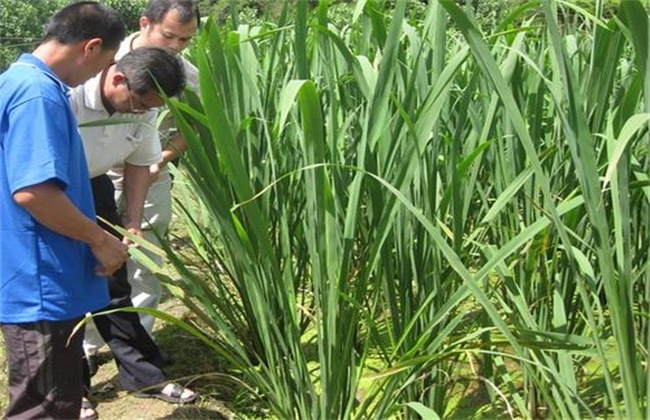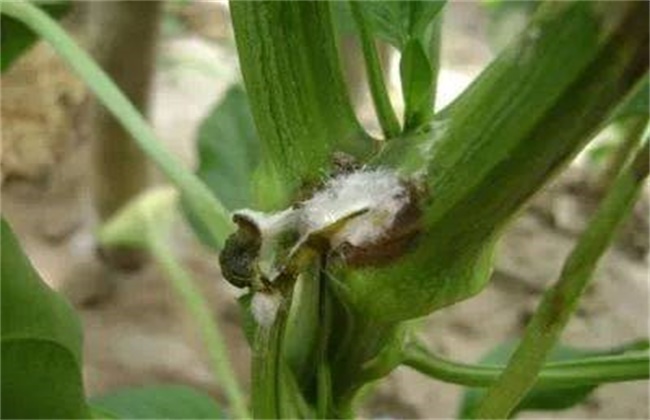Control methods of sheath blight of Zizania caduciflora
Sheath blight of Zizania caduciflora is common in the planting land all over the country. with the continuous increase of its planting area, the disease is becoming more and more serious. Sheath blight will destroy the photosynthesis of Zizania caduciflora, cause weak root absorption, and cause rot and lodging in serious cases. So how to control sheath blight of Zizania caduciflora? Come and have a look with the editor.

1. Occurrence of symptoms
Sheath blight mainly harms the leaf sheath of Zizania latifolia, followed by the leaf, which is the most susceptible to disease at the tillering stage and podding stage. The disease begins from the leaf sheath near the water surface, and begins with dark green water-stained spots, or gradually expands into oval disease spots on round branches. The middle part of the disease spot is grayish white, dark green when the humidity is high, and the edge of the disease spot is dark brown. Later, multiple disease spots will overlap each other to form tiger spot-like spots. The disease spot will extend to the leaves from the bottom up, so that the leaves will also appear disease spots, in serious cases, it will cause the leaf sheath to turn brown and rot, resulting in the leaves yellowing and dying in advance. In the moist environment, the disease spot promoted the white spider silk web, and gradually wound into cotton flocs, and gradually spread into rapeseed-sized sclerotia.
2. Occurrence regularity
After harvest, the sclerotia will fall in the field to overwinter, and the main source of the disease in the coming year, a small number of mycelia and sclerotia overwintering on the disease residues and weeds, the sclerotia left on the soil can survive for 1-2 years and spread by water the following year. When the field is in the environment of high temperature and humidity, the disease is very easy to occur, and the disease is serious in the land of long-term deep irrigation in the field, while frequent irrigation in shallow water, dry and wet is beneficial to the growth of Zizania caduciflora, so the disease is mild. In addition, the amount of fertilization and sooner or later also have a certain impact on the occurrence and development of the disease. Partial application of nitrogen fertilizer in the later growth stage will lead to greedy green plants, resulting in closeness in the field and increase in humidity, which creates favorable conditions for bacterial invasion and aggravates the disease.
3. Prevention and control methods
The most effective and simple way to control sheath blight is to carry out flood-drought rotation for more than 3 years, and to remove the bacterial source before planting. After irrigation or ploughing and raking in spring, you can use gauze bags to catch the sclerotial residue mixed with sclerotia in the edge and corner of the field and bring it out of the field for burning or deep burial. This can effectively reduce the source of bacteria, reduce the harm of sclerotia and reduce the incidence. At the same time, apply sufficient base fertilizer, increase rotten organic fertilizer, and appropriately increase phosphorus and potassium fertilizer to avoid excessive application of nitrogen fertilizer. In the process of cultivation, the old leaves, yellow leaves and diseased leaves should be removed in time to improve the field permeability. In the early stage of the disease, carbendazim, carbendazim and methyl thiophanate can be sprayed to prevent and cure the disease. The spray should be uniform, the dosage should be sufficient, and an appropriate amount of washing powder can be added to the liquid, which is beneficial for the liquid to adhere to the plant of Zizania caduciflora.
The above is the introduction of the prevention and control methods of sheath blight of Zizania caduciflora. I hope it can help you. If you want to know more about it, please follow us.
Related
- Where is it suitable to grow horseradish in China? it is expected to see the middle altitude horseradish in Alishan.
- How to prevent tomato virus disease reasonably? (Control methods included)
- Many people like to plant towel gourd on the balcony. What are the main points of this method and management?
- What crops can chili peppers be mixed with?
- Fertilization techniques and matters needing attention in Tomato
- What are the grafting techniques for peach seedlings in spring?
- Harm and control methods of root swelling disease of Chinese cabbage
- What are the pests of sweet potatoes? How to prevent and cure it?
- Symptoms, causes and Control methods of navel Rot in Tomato
- The cause of "Cucumber rotten bibcock" in Farmers' planting Cucumber and its Control Plan



